Don't wanna be here? Send us removal request.
Text
Decree 72 in Vietnam: Identifying social network accounts - what changes will happen to social network users
In the draft to replace Decree No. 72 expected to be applied in 2025, the Ministry of Information and Communications also proposed that accounts must be authenticated with real names and phone numbers to write articles, comments, and Livestream on social networks. This is a change that has a huge impact on the media industry, especially how users use them. In the article below, I will make predictions about positive and negative changes that will happen to social network users.

On the positive side, account identification can make it easier for users to receive information on social networks. All fake information, information with provocative, defamatory, or offensive implications are strictly controlled and required to be removed promptly or will be subject to penalties according to state law. Users will no longer have to worry about fake information being spread online, nor will they be affected by toxic information.

In addition, fraud on social networks will also be more strictly controlled. Account identification can help users avoid the risk of fraud on social networks, especially through shopping transactions.

On the negative side, identifying this social network account makes many people worry about safety and security. The information updated to determine identity may include citizen identification number, phone number, full name, date of birth, etc. This information has been hacked and fallen into the hands of criminals will be extremely dangerous. Besides, users may also feel uncomfortable sharing their thoughts on social networks because they feel that someone is always controlling and observing them.
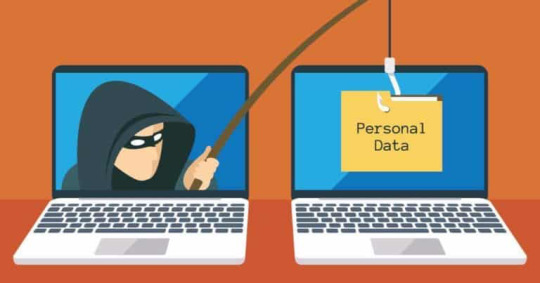
In addition, one of the factors that will change a lot is acc clone. The term "acc clone" is no longer unfamiliar to social network users today. If Decree 72 is applied, these clone accounts will also have to be identified or risk being no longer usable. This may result in a restriction on the number of clone accounts that can be created (for example, a citizen ID number can only create 2 accounts), and the definition of "clone account" will also be changed because there are no more "clones" anymore.

Decree 72 is becoming a hot topic because it is expected to cause major changes in social network users. On the one hand, Decree 72 will bring positive changes when false, offensive, and offensive information is strictly controlled, users can trust the information they read on social media without having to waste time filtering toxic information. Besides, the scam situation on social networks will also improve. On the other hand, account identification makes many people question information security, as well as feel uncomfortable when they use social networks.
Decree 72 is still in the draft stage and will be applied from 2025, so during this period, many people hope that Decree 72 will be carefully reviewed and edited so as not to create negative impacts as well as loopholes before being officially applied.
Reference list
An, L 2023, ‘Ðịnh danh tài khoản mạng xã hội’, Báo Nhân Dân điện tử, viewed 28 July 2024, <https://nhandan.vn/dinh-danh-tai-khoan-mang-xa-hoi-post764316.html>.
Thư viện pháp luật 2013, ‘Nghị định 72/2013/NĐ-CP quản lý cung cấp sử dụng dịch vụ Internet và thông tin trên mạng’, thuvienphapluat.vn, viewed <https://thuvienphapluat.vn/van-ban/Cong-nghe-thong-tin/Nghi-dinh-72-2013-ND-CP-quan-ly-cung-cap-su-dung-dich-vu-Internet-va-thong-tin-tren-mang-201110.aspx>.
XÂY DỰNG CHÍNH SÁCH, PHÁP LUẬT 2023, ‘Đề xuất xác thực tài khoản người dùng mạng xã hội qua số điện thoại di động’, xaydungchinhsach.chinhphu.vn, viewed 28 July 2024, <https://xaydungchinhsach.chinhphu.vn/de-xuat-xac-thuc-tai-khoan-mang-xa-hoi-qua-so-dien-thoai-di-dong-119230718143821089.htm>.
0 notes
Text
Can online games function like a social networking platform?
Online games, a term that is no longer strange to everyone today, especially Gen Z. At the time of the COVID-19 epidemic, online games have become one of the most popular entertainment tools. Known and extremely developed until now. With many features equivalent to a social networking platform, many people wonder whether online games can function like a social networking platform. In this article, I will compare the features of social networking platforms and online games.
Connect and communicate
When participating in games, players can make new friends by chatting with each other via chat box or voice chat directly during the game. Besides, the game also allows users to make friends with existing friends or new friends and monitor whether they are online or not.
Similar to other social networking platforms, online games also allow users to use avatars, which can be images chosen by the user or featured avatars provided by the game. In addition, some online games also offer more special features when allowing users to share articles, items obtained in the game, or share videos related to the game and others can interact directly with it.
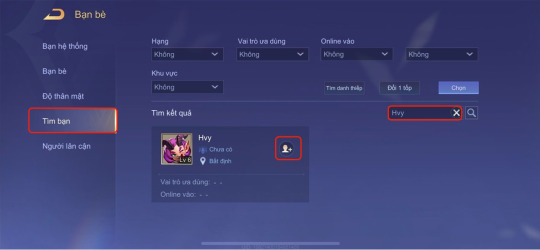
Guilds/Clans community
Like other community groups on other social networking platforms such as Facebook, online games also have their ways of community activities, more specifically in the form of Guilds or Clans. Guilds or Clan members will be able to join a "group" to socialize, connect, and support each other. At the same time, people who join Guilds or Clans can organize their games, events, or offline sessions.
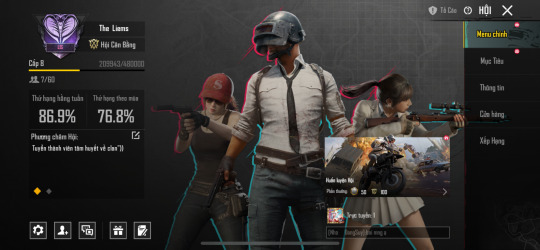
Organizations and events
Not only stopping at events within Clans and Guilds, game publishers can also organize large-scale events both online and offline, to attract more participants and to express gratitude to old users. At some events, common activities include exchanges, gift-giving, cosplay, etc..
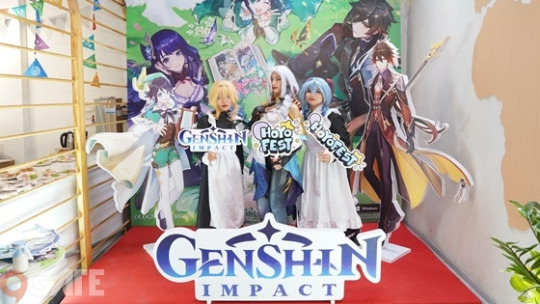
Business and advertising support
One thing that is often seen in online games is the cooperation between game publishers and other partners. Partners can be in any field such as fashion, cartoons, or even music groups. When cooperating with online games, game publishers can design different and suitable events with partners to promote and support each other.
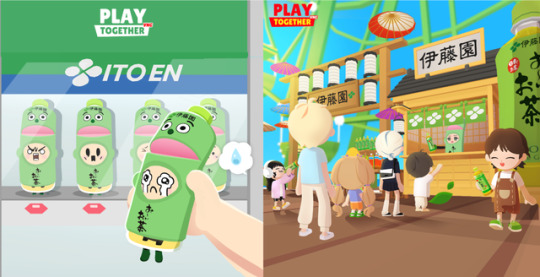
Things that online games surpass social networking platforms
All participants have common interests: to participate in a game and get to know each other, participants all have an interest in that game itself, which will make it easy for them to connect because they have something in common.
Privacy: most participants will use their nicknames to name their characters, and personal information will also be difficult to reveal, so participants will feel private and more comfortable.
Negative side of online games
Danger: because of the high privacy of game accounts, bad people can sneak in and trap you. Be careful with the information you receive, and think carefully before revealing personal information.
Advertising features are not optimized: cannot create pages or community accounts to advertise directly on online games. The only way is to cooperate with them, however, the cost of cooperation is very high and only suitable for big brands.
It can be seen that, in some ways, online games can function like a social networking platform, where people with common interests gather to interact and connect. However, there are also a few points where online games are not suitable to become a complete social networking platform. For me, online games are a quite suitable tool for people who want to find friends with common interests, especially at a time when online games are extremely developing in the Vietnamese market, however, to completely become a social networking platform, online games can develop many other features in the future.
0 notes
Text
The impact of filters on social network users.
Try to remember, what is the process for posting photos of yourself on your social networks? Let me guess, is it: take a photo -> go through the 2024 step to edit that photo -> post the picture with a caption? Whether you are male or female, your routine will include photo editing. It can be said that filters are one of the essential parts of photos posted on social networks today. So what is the impact of filters on social network users?

On the positive side, filters make people happier. Editing photos through many layers of filters can make that person's image more beautiful, making them feel excited when looking at the picture after editing. More specifically, when beauty filters are now combined on social media platforms such as Snapchat, Instagram, or Facebook very easily and conveniently, without spending much time editing photos, people like to use them even more to take photos and post them on social networks. When they post those images, they can receive many compliments from everyone and extremely high reactions, and they will feel very happy. In addition, humorous filters are currently very popular, such as transforming the face into a frog or making a certain part bigger like the eyes or mouth. These filters are highly entertaining, making people feel funny and entertained. Sometimes, users use filters just to bring laughter, not to post on social networks, or when those funny images are posted, they also have high interactions.

On the negative side, filters make users feel self-conscious. When social network users become too familiar with the images they use filters on, they will feel self-conscious about themselves when they are not as beautiful as the photos. This has a huge impact on the user's psychology, making them feel sad and have thoughts of cosmetic surgery.

Many people share that they don't seem to dare post unedited photos on social networks.
"People tend to only share images of themselves from certain angles, using beauty filters or taking advantage of lighting to present themselves as ideally as possible," said T. Makana Chock, professor Communications professor at Syracuse University (USA), analysis.
Do you agree with me, when 90% of people's photos posted have filters? Some photos are only slightly edited, but some photos are edited too differently from the real photo. When there are articles posted online to reflect on the difference between online and real life (also known as "Shopee photos and real products"), many people feel a lack of trust in the photos had been posted online.

What if the filter doesn't exist? It's difficult to say this because I grew up in the era of social media development as well as filters. But to predict, if filters had never appeared, I think social media platforms would not be as interesting and popular as they are now. Users will have to upload original photos, which is quite difficult for people who have low self-esteem. They will either be true to themselves, or they will choose not to post at all for fear of toxic comments on social media platforms. And perhaps, the content on social media will completely change.
To summarize, the appearance of filters has a great influence on social network users in both positive and negative ways. Filters help our photos become more beautiful, and funnier, have more reactions, and especially make users feel happier. However, overuse will make people self-conscious, or cause people to lose faith in the posted photos. Whether beneficial or harmful, I feel the existence of filters is a special thing, making social media more interesting.
Reference list
Anh, M 2020, ‘Tác hại của filter chỉnh ảnh’, thanhnien.vn, viewed 2 July 2024, <https://thanhnien.vn/tac-hai-cua-filter-chinh-anh-1851014088.htm#:~:text=Tuy%20nhi>.
Zing News 2022, ‘Thế hệ phụ nữ không dám đăng ảnh mặt mộc lên mạng’, Báo điện tử VTC News, viewed 2 July 2024, <https://vtcnews.vn/the-he-phu-nu-khong-dam-dang-anh-mat-moc-len-mang-ar686638.html>.
0 notes
Text
Does social media make people want cosmetic surgery?
Years ago, when celebrities had plastic surgery, they had to hide it from the public. They completely denied plastic surgery rumors for fear of being stigmatized by the public. However, in recent years, it seems that celebrities are no longer afraid of articles exposing cosmetic surgery, and the public has normalized it. With the development of social media, more and more influencers and young people are having cosmetic surgery and sharing it publicly on social networks. That makes me ask the question: Does social media make people want to get plastic surgery?

There are many reasons why a person decides to have cosmetic surgery. There are many reasons related to social media. One of the common reasons is:
Filters, and Photoshop (also known in Vietnam as "sống ảo")
Many social network users often tend to use filters or edit photos before uploading them to make themselves more beautiful. Many people even edit photos that are completely different from their real images. And when they receive compliments from other people on social networks, they will have the thought of wanting to have surgery like in the photo.
The term "Snapchat body dysmorphia" gained attention in 2018 when the American Academy of Facial Plastic and Reconstructive Surgery reported that more than 50% of plastic surgeons had patients who wanted surgery to look like their own image on social networks. This number increased by 13% compared to 2017.

2. Beauty ideal and toxic comments
When social media became popular, exposure to images of beautiful celebrities, along with many people trying to edit photos to look as beautiful as celebrities, unintentionally created a "beauty ideal". Some characteristics of the "beauty ideal" include white skin, a slim appearance, a high nose,…
This makes many people feel dissatisfied with their appearance when their body has something different from the "beauty ideal", and they will consider it their weakness.

Not only that, people whose body is different from the "beauty ideal" can also receive negative comments such as criticism or sarcasm about their appearance, making them feel tired and frustrated self-deprecation. Besides, many people also edit their photos to post on social networks, but when meeting friends outside, they receive negative comments when the online images are far different from reality.
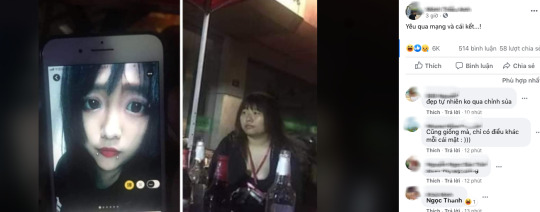
Because of that, many people decide to have cosmetic surgery not because they don't like their body but because they want to be like their "beauty ideal" or not have to endure negative comments.
3. Information about cosmetic surgery is widespread
When cosmetic surgery is no longer stigmatized and discussed by the public, people gradually become more open and many are willing to share about cosmetic surgery. At the same time, the development of social media also makes it easier for users to access cosmetic surgery advertisements. It is the advertisements about cosmetic surgery on social networks, or widely shared content about the results or experiences after cosmetic surgery that make many users feel more secure and want to have plastic surgery more beautiful.

On Instagram, #plasticsurgery reached 7.5 million posts.
"According to research, the number of people considering cosmetic surgery increased from 64% to 86%, and the number of people going to cosmetic doctors to receive consultation increased from 44% to 68%. After the pandemic, about 78% of research volunteers said he would have surgery to improve his confidence, up 30% compared to before the pandemic." The study was conducted by Boston University.
It can be seen that social media has a huge influence on the decision to have cosmetic surgery for many people today. It is difficult to judge whether cosmetic surgery is right or wrong.
On the one hand, cosmetic surgery can make people feel more beautiful, thereby becoming more confident about their appearance.
On the other hand, this will create a mass when everyone has the same characteristics as the "beauty ideal". Moreover, it will make many people feel self-conscious and hate their bodies when they don't get cosmetic surgery, at the same time, it will make many people feel self-conscious and hate their bodies when they don't get cosmetic surgery.
Reference list
Ivanov, T 2023, ‘Mạng xã hội đẩy giới trẻ Việt “nghiện” thẩm mỹ “rẻ” ra sao?’, Sputnik Việt Nam, viewed 23 June 2024, <https://kevevn.vn/20230707/mang-xa-hoi-day-gioi-tre-viet-nghien-tham-my-re-ra-sao-24004335.html>.
Như, T 2024, ‘Phẫu thuật thẩm mỹ, mạng xã hội và sức khỏe tâm thần (Plastic Surgery, Social Media and Mental Health)’, Exploring Psychology - Khám Phá Tâm Lý Học, viewed 23 June 2024, <https://trangtamly.blog/2024/05/08/phau-thuat-tham-my-mang-xa-hoi-va-suc-khoe-tam-than-plastic-surgery-social-media-and-mental-health/>.
Phương, D 2019, ‘Mặc cảm ngoại hình do mạng xã hội, giới trẻ đua phẫu thuật thẩm mỹ’, vnexpress.net, Báo VnExpress, viewed 23 June 2024, <https://vnexpress.net/mac-cam-ngoai-hinh-do-mang-xa-hoi-gioi-tre-dua-phau-thuat-tham-my-3949852.html>.
Thanh, C 2024, ‘Mạng xã hội khiến ngày càng nhiều người muốn phẫu thuật thẩm mỹ?’, thanhnien.vn, viewed 23 June 2024, <https://thanhnien.vn/thoi-trang-tre/mang-xa-hoi-khien-ngay-cang-nhieu-nguoi-muon-phau-thuat-tham-my-185240322175930432.htm>.
Thục, L 2024, ‘Văn hóa selfie khiến nhiều người phẫu thuật thẩm mỹ’, vnexpress.net, Báo VnExpress, viewed 23 June 2024, <https://vnexpress.net/van-hoa-selfie-khien-nhieu-nguoi-phau-thuat-tham-my-4723490.html>.
Thuỳ, L 2024, ‘Vì sao trẻ nghiện mạng xã hội dễ ám ảnh ngoại hình?’, vnexpress.net, viewed <https://vnexpress.net/vi-sao-tre-nghien-mang-xa-hoi-de-am-anh-ngoai-hinh-4697043.html>.
Xuan, M 2024, ‘Người thích đăng ảnh đẹp lên mạng dễ chấp nhận phẫu thuật thẩm mỹ?’, TUOI TRE ONLINE, viewed 23 June 2024, <https://tuoitre.vn/nguoi-thich-dang-anh-dep-len-mang-de-chap-nhan-phau-thuat-tham-my-20240116180604102.htm>.
0 notes
Text
Is the development of media promoting fast fashion in Vietnam?
Nowadays, the terms fast fashion and slow fashion are increasingly popular everywhere on social networking platforms, especially when many articles and reports point out that fast fashion causes many serious consequences to the environment. Many people believe that the big reason leading to the explosion of fast fashion is the development of media. So what is the reason why many people have this opinion?

The development of social media has led to many developments in other industries, especially the explosion of advertising. Back in many years ago, when the development of social media was still unfamiliar, fashion trends often reached the public through newspapers or fashion shows, and influencers had the power to influence them. The only big players in the fashion industry are famous designers or fashion brands, which take a lot of time to build their image.

However, in recent years, as technology has increasingly developed, many social media platforms have been born like YouTube, Facebook, Instagram, and especially TikTok, it seems that anyone can become an influencer. This is not strange when we are so used to KOLs, KOCs, also known as "Tiktokers" in the online community, participating in events that seem to be only for artists with many years of experience.

Because of the explosion of these influencers, fast fashion brands immediately booked them to advertise their products, and to create new fashion trends, also known as "hot trend" clothing.
Trendiness is analyzed as sharing up-to-date information about a product or service. Still, the new trend wasn't a prominent motivation for social media marketing. Moreover, the ease of use and the fun of doing so motivates users to follow the trend (Chen & Lin, 2019)
When outfits are becoming hot on social networks, users often tend to "follow the trend" to not feel outdated. And when there are so many trends created and changed every month and every week, they will also change their clothes or even their style continuously according to the trend.
And as consumer shopping demand increases, the supply chain needs to increase as well. As long as a trend becomes viral, a series of fashion shops will immediately search for similar models or design a similar model for sale.
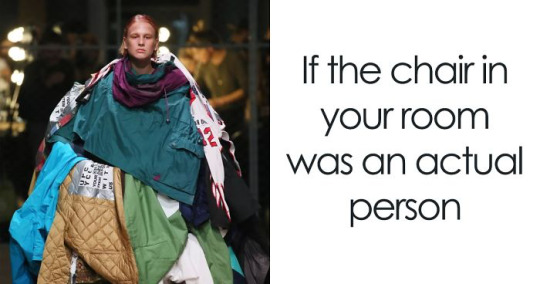
Also because of the development of social media, buying and selling online has become very familiar, and since then, becoming a seller on e-commerce platforms such as Lazada, Shopee or TikTok Shop has also become very popular becomes so easy.
When there are too many fashion shops springing up, other shops have to compete by either having a more unique design or using lower quality materials so that prices are cheaper than other shops.
The scary thing here is that consumers know that they will often change clothes, so they will often choose cheaper shops to save costs.

So, is the development of media promoting fast fashion in Vietnam? In my personal opinion, up to now, the development of media is one of the main reasons for the development of fast fashion in Vietnam.
But will fast fashion decline in many years to come? It is difficult to make predictions, but I think that with the development of media, the development of fast fashion will change in many different ways in the coming years. The reason for my opinion is that there have been many shares about the negative effects of fast fashion on the environment, and perhaps social media will be the place to spread this message. And maybe in the coming years, the fashion industry will develop differently when clothes are still hot trends but no longer have a big impact on the environment, such as sharing how to coordinate clothes with slow fashion, or a clothing material that is recyclable or less toxic, for example?
Reference list
Clausman, M 2024, ‘The Impact of Media on Fast Fashion’, StoryMaps, viewed <https://storymaps.com/stories/a68dd6c1876d478aa91f6533ebfbbaa7>.
Dinov, R 2022, ‘Social Media Promotion of Fast Fashion’, globaledge.msu.edu, viewed <https://globaledge.msu.edu/blog/post/57179/social-media-promotion-of-fast-fashion>.
Hayes, A 2024, ‘Fast Fashion Explained and How It Impacts Retail Manufacturing’, Investopedia, viewed <https://www.investopedia.com/terms/f/fast-fashion.asp>.
Nguyen, T 2020, ‘Có thật là thời trang nhanh sắp thoái trào không?’, Vietcetera, viewed <https://vietcetera.com/vn/co-that-la-thoi-trang-nhanh-sap-thoai-trao-khong>.
Prameswari, C 2022, ‘The Influence of Social Media Marketing Towards Fast Fashion Brands’, Research Gate , viewed <https://www.researchgate.net/publication/366971569_The_Influence_of_Social_Media_Marketing_Towards_Fast_Fashion_Brands>.
0 notes
Text
The Online Social Movement of #NeverAgain: the rise of students
After the shooting that resulted in the deaths of 17 students and staff in February 2018 in Parkland, a student council at Marjory Stoneman Douglas High School (MSD) was formed to call for reforms in weapons control and prevent school shootings. The student council brings together many prominent names like David Hogg, Emma González, Cameron Kasky Jaclyn Corin, and many other students. It was forty days after the shootings at Stoneman Douglas High School in Parkland Florida that a group of students mobilized to conduct a national protest to support gun control in the United States(Burch& Mazze,2018)

Operating under the banner of March for Our Lives, the emerging movement utilizes the hashtag #NeverAgain as a calling card (Alperstein& Jones, 2020). Many protests took place across the United States, attracting millions of participants, including "March for Our Lives" on March 24, 2018, in Washington, DC. In June 2018, members of this student council decided to travel across the United States and organize protests that summer, while encouraging teenagers who would turn 18 to vote in the 2018 election. The protest was energized after receiving more than $500,000 in donations from George and Amal Clooney and many other celebrities. Michelle and Barack Obama also wrote a handwritten letter to Parkland students, expressing admiration for their advocacy against gun violence in March 2018.


During the difficult protest, the MSD student body used the hashtag #NeverAgain on social networking platforms such as Facebook, Instagram, and X (Twitter) to raise awareness about the campaign. Emma González is one of the most typical and famous faces, having twice as many followers as the National Rifle Association (NRA) on X and she inspired others to join the movement, comforting the students who survived shootings around the world and criticizing politicians who she felt treated her and other student survivors of gun violence with little or no respect. Following that, a series of other members also shared their messages with #NeverAgain and #MarchforOurLives and called on other users to tweet. The hashtag #NeverAgain became a hot hashtag on search engines and created a large media wave on social networks.


Although passing new gun control laws still faces many political challenges, the movement has received many positive results. Specifically, the Florida legislature passed a bill titled the Marjory Stoneman Douglas High School Public Safety Act which raised the minimum age for purchasing firearms to 21, established waiting periods and testing background checks, providing arming programs for some teachers and hiring school police, banning the sale of guns, and banning potentially violent or mentally unhealthy people from being arrested under certain laws determined.
It can be seen that the success of #NeverAgain has become one of the typical examples of the spread of hashtags on social networking platforms.
Reference list
Alperstein, N & Jones, T 2020, ‘The Online Social Movement of #NeverAgain: How Social Networks Build a Sense of Membership, Influence, Support and Emotional Connection on Twitter’, The Journal of Social Media in Society, vol. 9, no. 2, pp. 127–149, viewed 8 June 2024, <https://thejsms-org.translate.goog/index.php/JSMS/article/view/599?_x_tr_sl=en&_x_tr_tl=vi&_x_tr_hl=vi&_x_tr_pto=wapp>.
Appropriations Committee and Rules Committee 2018, ‘CS/SB 7026 — Public Safety’, Flsenate.gov, viewed <https://www.flsenate.gov/Committees/BillSummaries/2018/html/1886>.
Sippy, Z & Sheinerman, M-R 2024, ‘The #NeverAgain Movement Six Years Later’, www.thenation.com, viewed <https://www.thenation.com/article/activism/parkland-florida-never-again-march-for-our-lives-anniversary/>.
0 notes
Text
Reality TV show "2 Days 1 Night" Vietnam: Is it just an entertaining reality show or does it have many meaningful messages?

The reality TV show "2 Days 1 Night" (Vietnamese name: "2 Ngày 1 Đêm") was copyrighted by Vie Network from the Korean program "1 Night 2 Days" and aired its first episode on June 19, 2022.
In the beginning, the media audience did not have too many expectations for the program when there were too many reality TV shows that were copyrighted to Vietnam but were not completed, making the audience extremely disappointed. However, through the first broadcast episodes, 2 Days 1 Night has completely attracted the audience with a special format and brought its unique impressions of Vietnam.
2 Days 1 Night brings together 6 main members including Truong Giang, Kieu Minh Tuan, Le Duong Bao Lam, Cris Phan, Ngo Kien Huy, Hieuthuhai, and special guests through episodes including models, actors, singers, artists, and rappers like H'Hen Nie, Song Luan, Isaac, Bray, etc. Members and guests will divide into 2 teams and complete the challenges to receive benefits such as eating well, and sleeping well or suffering punishments such as eating poorly or sleeping poorly. Through many broadcast episodes, the show always brings many emotions to the audience because of the humor of the members and guests or the love and team spirit that the players have for each other. From being doubted by the audience, 2 Days 1 Night has become a spiritual dish every weekend for the audience, always appearing on the trending charts on YouTube.

However, laughter is not the only thing that the show 2 Days 1 Night brings to the audience.
"After watching 2 Days 1 Night, I just want to travel"?
Although 2 Days 1 Night is not a purely tourism program, it highlights the majestic beauty of the landscape in Vietnam's tourist destinations through expensive scenes. Each journey of "2 Days 1 Night" has stops in different provinces and cities, taking audiences to explore the S-shaped country at a series of locations, historical sites, and scenic spots spanning three regions of the country. Audiences can experience wonderful scenery, as well as learn more about the culture, art, specialties, history, and people of each locality. The program has helped promote the image of tourism in Vietnam smartly and skillfully not only to introduce it to Vietnamese audiences but also to foreign tourists. After watching 2 Days 1 Night, audiences will certainly not have a headache about where to travel, but instead about which province to go to explore.
2 Days 1 Night and the message of environmental protection.
Not only stopping at smartly promoting tourist destinations, 2 Days 1 Night also cleverly integrates messages about environmental protection. Through episodes filmed in the mountains, the cast had natural conversations to bring the message "plant trees to create forests, balance the ecosystem, prevent floods and erosion…"

The subtle actions of guests are also recorded by the program to send the message of maintaining hygiene in public places.

Image of members and guests picking up trash with soldiers at Ly Son beach and message.
2 Days 1 Night is a good example of how reality TV shows can have a big impact on social media users. Not only for entertainment, the program also incorporates elements of promoting Vietnam tourism as well as cleverly integrating meaningful messages and has been successful and received positive feedback from viewers.
Reference list
Đan, T 2022, ‘Vì sao 2 Ngày 1 Đêm ngày càng thu hút khán giả Việt?’, kenh14.vn, viewed <https://kenh14.vn/vi-sao-2-ngay-1-dem-ngay-cang-thu-hut-khan-gia-viet-20220903180453889.chn>.
Khánh, A 2023, ‘Nhìn lại hành trình ’2 ngày 1 đêm’ mùa 2: “Xem show muốn đi du lịch”!’, Báo Người Lao Động Online, viewed <https://nld.com.vn/nhin-lai-hanh-trinh-2-ngay-1-dem-mua-2-xem-show-muon-di-du-lich-196231210175352751.htm>.
Lục, D 2022, ‘2 ngày 1 đêm và thông điệp bảo vệ môi trường’, www.phunuonline.com.vn, viewed <https://www.phunuonline.com.vn/2-ngay-1-dem-va-thong-diep-bao-ve-moi-truong-a1474128.html>.
Nguyễn, L 2023a, ‘’2 Ngày 1 Đêm’: Hơn cả một show truyền hình Việt hóa!’, VieZ.vn, viewed 3 June 2024, <https://viez.vn/2-ngay-1-dem-hon-ca-mot-show-truyen-hinh-viet-hoa-vkjl7wUrzsWZ.html>.
Nguyễn, L 2023b, ‘2 Ngày 1 Đêm: Giá trị thật tạo nên tình cảm thật’, VieZ.vn, viewed 3 June 2024, <https://viez.vn/2-ngay-1-dem-gia-tri-that-tao-nen-tinh-cam-that-OA68TDSRkUr4.html>.
Quỳnh, M 2023, ‘HÀNH TRÌNH “2 NGÀY 1 ĐÊM” TẠI DI SẢN VĂN HÓA THẾ GIỚI MỸ SƠN’, https://disanvanhoamyson.vn/, viewed <https://disanvanhoamyson.vn/tin-tuc/hanh-trinh-2-ngay-1-dem-tai-di-san-van-hoa-the-gioi-my-son.html>.
0 notes
Text
[Week 3] Digital Community: Tumblr Case Study
These days, the development of digital technology is becoming more and more explosive. They are widespread and popular everywhere, making anyone of any age want to become "more digital".
With the rapid development of digital technology, a series of social networking platforms have appeared to help people connect, share, or serve various personal purposes such as Facebook, Instagram, X (Twitter), TikTok, etc.. Among the social networking platforms that many people are interested in, Tumblr impresses with its differences.
What is Tumblr? What makes Tumblr unique?

"Tumblr is whatever you want it to be."
Tumblr is a microblogging and social networking platform founded in 2007 by David Karp. This is an interesting platform to develop an online community where users can create personal blogs or microblogs and post content in many different formats like posts, videos, images, GIFs, or even music without the length limit of the post. Through many years of development, Tumblr has had up to 519 million Tumblr Blogs by 2024 and hundreds of billions of posts on it.
Tumblr not only attracts users with its ability to support multimedia through posts, but it also attracts users with many unique features that not every platform has
Absolute privacy
Just using one email, users can create many different blog pages. Different from other platforms like Facebook, these block pages can be given any name depending on the user. It can be a name, nickname, or anonymous. Tumblr provides a high level of anonymity and allows users complete freedom to share without providing any information.
Moreover, when in "safe mode", Tumblr allows users to set up their accounts to only display valid accounts (not minors), allowing users to choose the content considered safe or sensitive content.
Interaction
Tumblr allows everyone to see public posts without having to log in. At the same time, Tumblr allows users to follow other accounts without requiring a mutual connection, promoting a non-reciprocal social network. In particular, online status is not provided to others. Therefore, this is a great feature for "stalkers" who want to search for anyone's information.
Users who log in to their accounts can like, follow, or repost content on their blogs. At the same time, users also can add or delete blogs they follow, as well as block others from accessing their blogs.
Hashtags space
Tumblr provides a large space dedicated to hashtags, facilitating the discovery of content with similar topics, and making it easier for users to search. At the same time, users' self-created hashtags can also make them have a unique impression.
Tumblr - a potential online brand community

According to Mousavi, Roper, and Keeling (2017), an online brand community (OBC) provides an opportunity for people to transform their identities through active participation in communities and the adoption of shared norms and values.
Tumblr fits perfectly with the concept of OBC. With incognito mode and no distinction between regular and verified accounts, all users on Tumblr are equal. They can share personal opinions and connect with people who share their ideals. Users can live true to themselves, comfortably and freely without fear of anyone's judgment. These features help users connect through common interests and personalities, and help them bond into a community. One of the typical examples is the strong growth of the LGBTQ+ community on Tumblr.
In conclusion, Tumblr is a unique social networking platform with special features, that help users interact, connect and post posts publicly or anonymously. The uniqueness of Tumblr has created an equal digital community where everyone can feel free to share and connect.

Reference list
Chang, Y, Tang, L, Inagaki, Y & Liu, Y 2014, ‘What is Tumblr’, ACM SIGKDD Explorations Newsletter, vol. 16, no. 1, pp. 21–29.
Mousavi, S, Roper, S & Keeling, KA 2017, ‘Interpreting Social Identity in Online Brand Communities: Considering Posters and Lurkers’, Psychology & Marketing, vol. 34, no. 4, pp. 376–393.
ProfileTree 2023, ‘What Is Tumblr? A Comprehensive Guide to This Unique Social Media Platform | ProfileTree’, ProfileTree Web Design and Digital Marketing, viewed <https://profiletree.com/what-is-tumblr/>.
Ruby, D 2023, ‘59+ Tumblr Statistics For 2023 (Demographics & Trends)’, DemandSage, viewed <https://www.demandsage.com/tumblr-statistics/>.
Tumblr 2020, ‘About Tumblr’, What is Tumblr? Well, it’s a website., viewed <https://about.tumblr.com/>.
1 note
·
View note